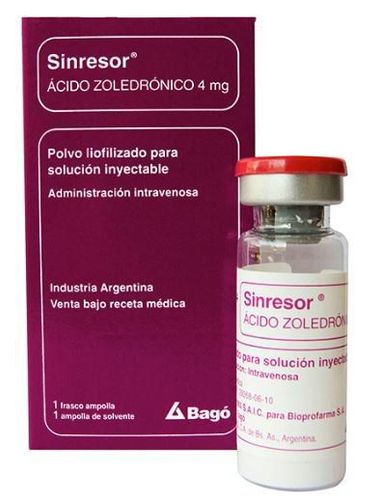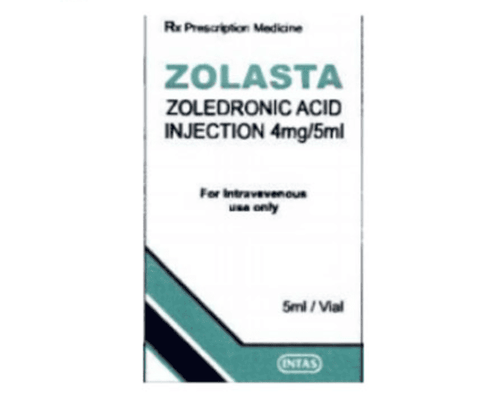This is an automatically translated article.
Most cancer patients will experience severe pain caused by the disease itself or its treatment. In particular, some people have been cured of cancer but may continue to experience pain. Learn about the causes and pain relievers for cancer patients today.
1. What causes cancer pain?
Cancer pain comes in many forms. It can be a dull, aching or burning pain; The pain can be constant, intermittent, mild, moderate, or severe. The severity of cancer pain depends on several factors such as the type of cancer you have, how advanced it is, where the tumor is located, and your pain tolerance.
Most pain from cancer is manageable and pain relief is an essential part of your treatment.
Pain can be caused by the cancer itself if it grows or destroys nearby tissues. As the tumor grows, it can press on nerves, bones or other organs. Tumors can also cause the body to release chemicals that cause pain.

Bệnh nhân ung thư sẽ chịu nhiều cơn đau dữ dội do chính bệnh hoặc quá trình điều trị gây ra.
Cancer treatment can help relieve pain in these cases. However, cancer treatments including surgery, radiation therapy, and chemotherapy can also cause pain.
2. Pain relievers for cancer patients
There are a number of treatments available to relieve cancer pain. Your options may depend on the cause and intensity of the pain you are feeling. You may need a combination of pain treatments to find the best pain relief.
Bone cancer pain relievers, lung cancer pain relievers are drugs that many patients are interested in because the above cancers cause pain to patients. However, in the treatment of pain for most cancers, doctors will consider the following drugs alone or in combination:
Over-the-counter pain relievers: For mild pain and On average, over-the-counter pain relievers can be helpful. Examples include Aspirin, Acetaminophen and Ibuprofen. Opioids: Opioids are prescription drugs used to treat moderate to severe pain. Examples of opioids include Morphine and Oxycodone. Other prescription medications: Other medications can help with cancer pain, including antidepressants, anti-seizure medications, and steroids. All of the above pain relievers have side effects. Talk to your doctor to understand the benefits and risks of each pain treatment and how to manage side effects.

Thuốc giảm đau cho bệnh nhân ung thư đều có tác dụng phụ.
In addition to drug pain relief treatments, surgery to remove the tumor or radiation therapy to shrink may be used along with medication for additional pain relief. In most cases, doctors treat cancer pain with pain medications or physical therapy, rehabilitation, biofeedback, and relaxation techniques. Other treatment options for cancer patients may include nerve blocks, which involve injecting pain medication into or around nerves or the spine.
3. Factors affecting the effectiveness of pain relief in cancer patients Some of the following factors can affect the outcome of pain relief in cancer patients:
Doctors are reluctant to ask about pain or give advice. pain treatments: Health care professionals should ask people with cancer about pain at every visit. Some oncologists don't know enough about pain treatment. In this case, ask for a referral to a palliative care specialist. Given current concerns about opioid abuse, many doctors may be reluctant to prescribe these drugs. Talking with your oncologists is essential for the proper use of these drugs. Patients are reluctant to talk about their pain: Some people don't want to "disturb" their doctor, or they fear that the pain means the cancer is getting worse. Fear of the addictive effects of opioids: The risk of addiction for people with terminal cancer taking opioids is low. You may develop a tolerance to pain medication, which means you need higher doses to control your pain. If the current dose of medicine is not providing pain relief as well as it used to, talk to your doctor about a higher dose or a different medication. Do not increase the dose on your own. Fear of drug side effects: Some people fear unwanted side effects of medication such as drowsiness, inability to communicate, acting strangely, or dependence on the medication. Don't worry, these side effects usually go away once your doctor finds the correct level of pain reliever for you.

Có nhiều yếu tố ảnh hưởng đến hiệu quả giảm đau trên bệnh nhân ung thư
How severe is the pain? What is the pain like (throbbing, dull, aching)? Where do you feel pain? What causes pain? What makes the pain worse or lessened? What pain relievers do you use, such as medications, massage, and hot or cold compresses, how do they help, and what are the side effects? Using a pain rating scale of 0 to 10 - with 0 being no pain and 10 being the worst pain imaginable - can help you describe your pain to your doctor.
In summary, cancer pain can be treated with pain medications or physical therapy, rehabilitation, biofeedback, and relaxation techniques. Other treatment options for cancer patients may include nerve blocks, which involve injecting pain medication into or around nerves or the spine.
Please dial HOTLINE for more information or register for an appointment HERE. Download MyVinmec app to make appointments faster and to manage your bookings easily.













